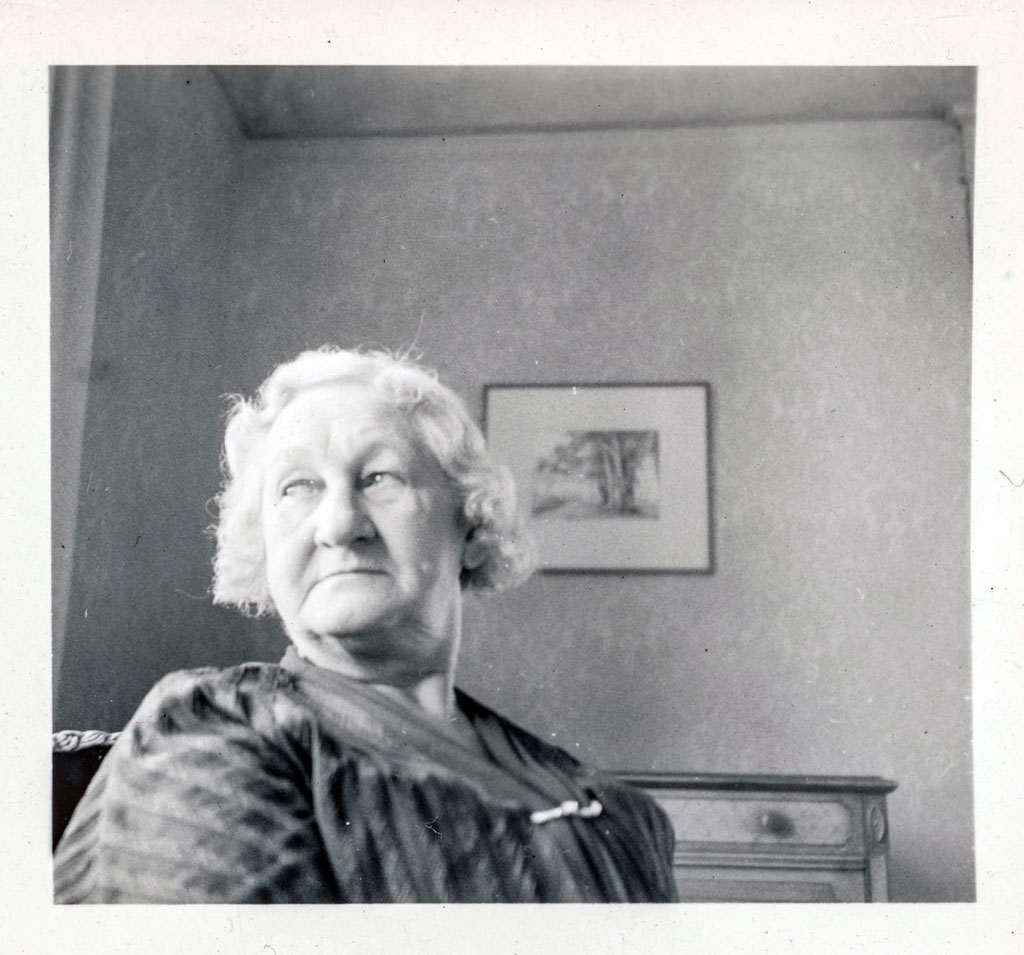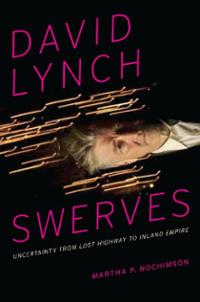
Rae Pagliarulo
ME AND MRS. BEE
When Mrs. Bee leaves her house, she uses a metal cane to get down the steps, the kind they sell at Rite Aid next to the plastic bed pans and ace bandages. It taps against the concrete at perfect metallic intervals, tink, tink, tink, as she lowers herself down. I hear it even when she isn’t home, when I lock things up for the night, when I nap with the windows open. It’s a small block I live on, houses jammed together in squat, red brick rows. You don’t miss much on a street like this.
◊
Years ago, on the other side of the city, I shared a second floor apartment with my boyfriend. His amusing irritation, once directed at the world, shifted at some point to contempt, aimed squarely at me. Life with him was a full-time job—I managed his moods, changes in weather, what kind of day he had at work; all factors that would dictate whether I was berated, belittled, or simply ignored. I felt more like I was living inside him than in the apartment itself. I started to carve out tiny places where I felt safe. In the bathroom, I’d curl up on the floor against the locked door. It was the only room not filled with echoes of the dinners I ruined, the fights I picked, the stupid things I must have said to make him angry.
Later, after he left me, I wandered the empty apartment with a broom and dustpan the night before I had to move out, marveling at how the lines between territories had faded. On my knees, I scrubbed that square of the bathroom floor with a brush and rag, hoping to scour away the misplaced blame I laid on myself from the grout. I wanted to leave my home in better shape than I found it.
◊
Watch it, she growls from her front step. Richie from two doors down, the husky contractor with a smoker’s cough, is parking his red Ford F-150. The bed is dirty and full of cement dust, a wheelbarrow, pieces of a ladder, errant bricks. He works odd jobs. Each time he cuts the wheel, the nose of his behemoth ride encroaches on the handicapped spot in front of her house. Her hunter green Miata takes up little more than half the parking space, Richie’s truck, however massive, is still feet away from her bumper. Take it easy, Richie whines. Back it up! Mrs. Bee barks. I’m watching you. She just wants to protect her turf. I get it.
◊
On Wednesdays, when everyone puts out their garbage, all the neighbors congregate on one stoop. I call them “The Trash Night Social Club.” Thanks to Tonya, my gossiping next door neighbor, the stoop of choice is often the one we share. The evening’s topics generally include who moved in or out, who finally left her good-for-nothing husband, or if it’s a slow week, what’s on sale at Target. There are no secrets on this block. Everybody knows everything.
For every night I’ve stooped with the club, I’ve never seen Mrs. Bee put out a bag. I haven’t seen a neighbor do it for her, either. Maybe she just doesn’t make that much trash. Maybe she puts it out after I’m asleep—she is usually out until after midnight. What could she be doing so late at her age? She must be eighty-five if she’s a day. I come up with a little narrative where she eats dinner at some relative’s house most nights. That must be where she is.
◊
I talk to my cat as though she has every intention of answering me. No one asks me if I’m going to shower or who’s shopping for groceries this week. If I want to be with people, I go out and find them. While I’m having seconds of my shrimp lo mein and leaving the phone unanswered, I wonder if this freedom might someday shift to suffocation. But here I am.
◊
In summer, there is no such thing as quiet. In the shadow of I-95, the hum of traffic is constant. Allegheny Avenue runs east to west, connecting Port Richmond, Kensington, Nicetown, Tioga. People never stop coming or going. As my neighbors arrive home from work and greet the thick August night, the air conditioners on my block click on, one by one. The narrow sidewalks soak with condensation and the buzzing merges with the static of cars. Before bed, I peek through the curtains and see that Mrs. Bee’s bedroom window is just cracked open, free of a metal box. Maybe it’s in the back.
◊
The lights and TV were on in the bedroom, Tonya says to me one Wednesday, as we sit on the stoop, swatting mosquitoes. I found her right on the floor. Musta happened in the afternoon. It took the coroner hours to show up, she complains on a Marlboro exhale. I seen worse, though. I’m a nurse. I ask how she knew to go over and check on Mrs. Bee. That damn car didn’t move for two days, she says. That old lady was at the casino every fuckin’ day, soakin’ up the air conditioning for as long as she could. I knew something was wrong when it was hot as fuckin’ balls and she didn’t leave.
She was all alone in there, I say into the phone later. Isn’t that sad? My mother asks, Are you worried about being alone in the house now? Does Mrs. Bee’s passing makes me want a roommate, expressly so there might be a witness for my untimely death? No, I sigh. That’s not it. It’s just sad. It would be sad if I had a roommate, too.
◊
I can’t escape aloneness, and I don’t want to. I indulge in it. I wonder if building my solitude ensures that I will always love it—if I can avoid the kind of loneliness that surrounds a body like fog, the kind that begs to be filled with something, anything, a cocktail in a dark bar, pancakes in a crowded diner. I pride myself on not needing anyone. Maybe what I’m proudest of is the image of confident aloneness, not the reality. I learned to go to the movies solo. I bring a book with me everywhere. I refuse to pass up a good dinner or a night of theater just because I don’t have a companion.
Then I come home, and my house slumbers in the dark. I have to go from room to room, creating my own illumination. I’m proud of my ability to exist alone—not just to exist. To revel. But when I roam from living room to dining room to kitchen, flipping light switches and waking up the house for my benefit, I can’t help but wonder—what’s the point? Stay asleep. It’s only me.
◊
When I was a kid, I was petrified of dying. I used to try to put myself in that mindset where I knew I wouldn’t wake up in the morning. All I could think was, not ready, not ready. If I have to die (and it seems that I do), I want it to be quick and surprising. Painless, if possible. Maybe just, “Huh, I’ve got a headache,” and then boom—over. You could survive being hit by a truck. You could feel the early ripples of a heart attack for days. A gunshot could miss a major artery by a millimeter. I need to die quietly and instantly—just a flash of light, then nothing.
◊
I am the only one around to do the dishes, to clean the cat box, to pull the weeds from the cracks in the pavement, to fill the dark green water bag slung around my sidewalk tree. I resent the absence of someone to bring me my snacks and books when I am sick or tired or just really comfortable. I remember long lazy Saturdays in my second floor apartment across town, listening to that terrible old boyfriend making a veggie scramble and coffee in the next room. Even he had his nice moments. Now, I am the only one to crack the eggs and grind the beans.
When I first moved into this row home right across from Mrs. Bee, I feared the space that was suddenly mine. I was overwhelmed by three bedrooms, a basement, a kitchen, and a pantry. But life expands to fill the area it’s given. Over careful months, I spread out. I relaxed. I stopped sleeping with too many dreams of robbers and broken glass, of locks and closets and bathrooms. In time, I found a kind of power in solitude. A dangerous thing I could wield instead of run from. Sometimes, alone resembles lonely. Sometimes, I don’t leave the house for days.
◊
No kids, Tonya tells me. No family at all. Her lawyer’s got power of attorney. Is there freedom in choosing solitude—the kind you can enjoy, if you cultivate it for yourself? Maybe that’s what scares me most about the sight of Mrs. Bee’s empty house. What if her solitude wasn’t a choice—that, if given the chance, she would have opted not to die alone on a sweltering hot afternoon, only to be found two days later by a nosy neighbor? But then I think about her signing the paper that gave a lawyer power over her life after she was done with it, and I wonder if maybe she lived just as she wanted. If one day, with the television and lights on in the middle of the afternoon, it ended quietly and painlessly, and she was good and ready.
◊
Years later, after Mrs. Bee’s house has been rented to pot-smoking college students, after the bad boyfriend has married another woman and moved to another state, I will lie in bed with someone new, someone who will ask before he stops by because he respects my need for time alone. We will whisper into each other’s hair, the quiet rumbles of dreams not yet realized, and I will hear myself ask him, Where will we live? He will adjust his body closer to mine, the closed end of a parentheses. I will feel the walls of my home expand and contract along with our bellies, the rise and fall of alone and lonely coming together. We, he will make sure to emphasize, can live wherever we want. We can even live here.
 Rae Pagliarulo is the Writing Life column editor for Hippocampus Magazine and works as Development Director for a Philadelphia arts nonprofit. Her essays, poems, and articles have appeared in Full Grown People, bedfellows, Hippocampus, The Manifest-Station, r.kv.r.y. quarterly, the Brevity Blog, and others. Her work is anthologized in The Best of Philadelphia Stories: 10th Anniversary Edition. She is the 2014 recipient of the Sandy Crimmins National Poetry Prize, a 2015 Pushcart Prize nominee, and a graduate of Rosemont College’s MFA program. Author photo by Dave Garrett Sarrafian.
Rae Pagliarulo is the Writing Life column editor for Hippocampus Magazine and works as Development Director for a Philadelphia arts nonprofit. Her essays, poems, and articles have appeared in Full Grown People, bedfellows, Hippocampus, The Manifest-Station, r.kv.r.y. quarterly, the Brevity Blog, and others. Her work is anthologized in The Best of Philadelphia Stories: 10th Anniversary Edition. She is the 2014 recipient of the Sandy Crimmins National Poetry Prize, a 2015 Pushcart Prize nominee, and a graduate of Rosemont College’s MFA program. Author photo by Dave Garrett Sarrafian.
Image credit: simpleinsomnia on Flickr
Read more from Cleaver Magazine’s Issue #25.



